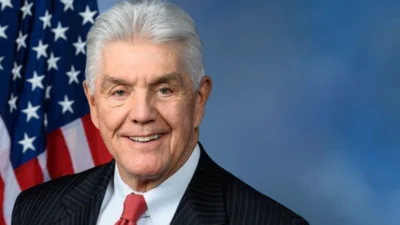U.S. Senators Joe Manchin (D-WV), Chairman of the Senate Energy and Natural Resources Committee, Angus King (I-ME), Jim Risch (R-ID), Shelley Capito (R-WV), and Sheldon Whitehouse (D-RI) sent a letter to Secretary of Energy Jennifer Granholm calling on the Biden Administration to follow guidelines in the bipartisan Infrastructure Investment and Jobs Act (IIJA) to invest in a broad variety of energy storage technologies.
In a letter to Secretary of Energy Jennifer Granholm, the Senators applaud the use of IIJA funding to support lithium-ion battery technologies – the most prevalent type of energy storage – and urge the Administration to use future funding for both lithium and non-lithium battery chemistries to reduce America’s reliance on foreign supply chains and strengthen our energy security.
The Senators said in part: “In order to ensure continued U.S. leadership in battery technologies, we implore you to ensure that the Department’s implementation of funds authorized in Section 40207 of the Infrastructure Investment and Jobs Act (IIJA) advances a diverse portfolio of market-ready technologies that includes both lithium and non-lithium alternative battery chemistries.
“To date, all programmatic funding awards for IIJA Section 40207(b) were for projects related to the lithium-ion battery supply chain. We are pleased to see this funding awarded and recognize the importance of domestic lithium-ion batteries, especially in the transportation sector. However, going forward the Department should also seek to accelerate the deployment of domestic alternative battery manufacturing for grid-scale battery energy storage, in addition to lithium-ion technologies, in line with Congressional intent.
“Battery energy storage will play a crucial role in the clean energy future and increasing domestic advanced battery manufacturing presents an important opportunity to restore and diversify our nation’s energy supply chains while creating thousands of high paying clean energy jobs. We thank the Department for its efforts to date and look forward to working with the Administration on achieving these priorities.”
The full letter is available below or here.
Dear Secretary Granholm,
In order to ensure continued U.S. leadership in battery technologies, we implore you to ensure that the Department’s implementation of funds authorized in Section 40207 of the Infrastructure Investment and Jobs Act (IIJA) advances a diverse portfolio of market-ready technologies that includes both lithium and non-lithium alternative battery chemistries.
To date, all programmatic funding awards for IIJA Section 40207(b) were for projects related to the lithium-ion battery supply chain. We are pleased to see this funding awarded and recognize the importance of domestic lithium-ion batteries, especially in the transportation sector. However, going forward the Department should also seek to accelerate the deployment of domestic alternative battery manufacturing for grid-scale battery energy storage, in addition to lithium-ion technologies, in line with Congressional intent.
According to the DOE’s recent report on supply chains for grid energy storage “ensuring more than one technology and different chemistries among the options for grid energy storage systems will increase the resiliency of the overall supply chain.” In December of 2022, Congress provided additional clarity and direction to the Department via report language expressing the desire for a wide array of battery chemistries.
“The agreement notes the Department's efforts to expand the capabilities of the United States in advanced battery manufacturing for long-duration grid-scale energy storage. As the Department continues its efforts to scale up a domestic advanced battery supply chain, including battery manufacturing demonstration projects, the Department is encouraged to seek a broad spectrum of battery chemistries not wholly exclusive to lithium-ion based battery technology and encourages the Department to craft grant solicitations widely enough to include all compelling emerging technologies such as multi-day storage (MDS) chemistries such as iron-air batteries or other new configurations.”
Battery energy storage will play a crucial role in the clean energy future and increasing domestic advanced battery manufacturing presents an important opportunity to restore and diversify our nation’s energy supply chains while creating thousands of high paying clean energy jobs. We thank the Department for its efforts to date and look forward to working with the Administration on achieving these priorities.
Original source can be found here






